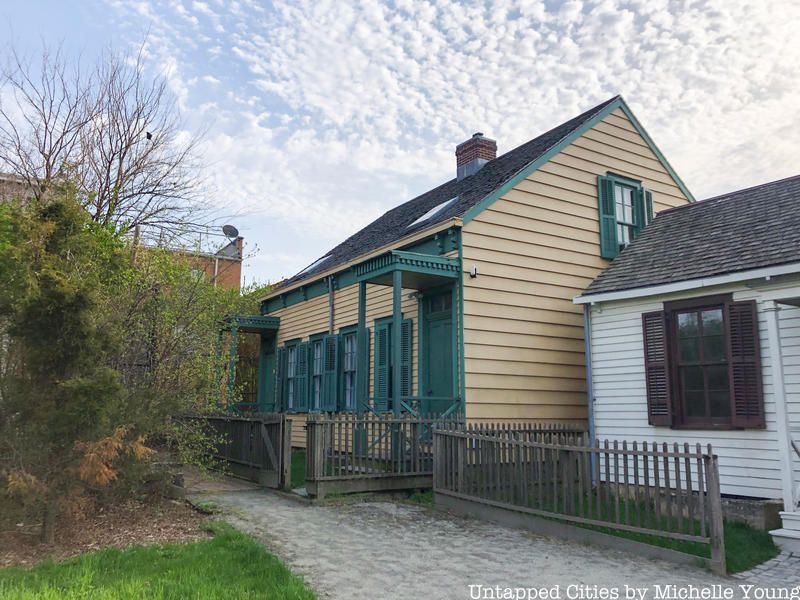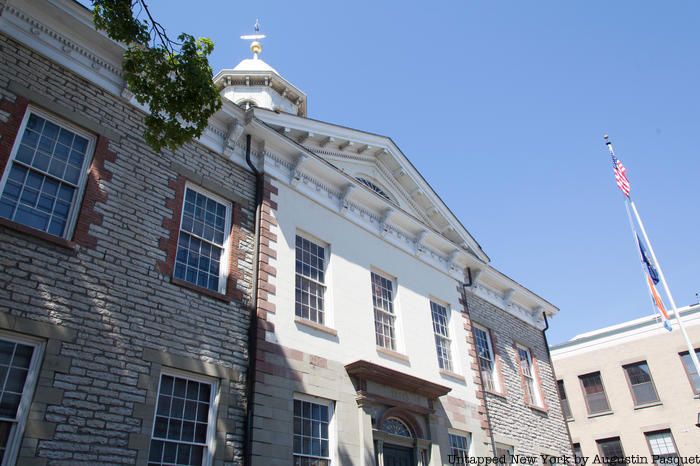Last-Minute NYC Holiday Gift Guide 🎁
We’ve created a holiday gift guide with presents for the intrepid New Yorker that should arrive just in time—


In the midst of racial protests across the country, Juneteenth, a holiday commemorating the end of slavery in the United States, takes on a greater purpose as states and cities honor the holiday in new ways. In New York City, each borough will be featuring picnics, rallies, and virtual programming to honor the holiday and Black lives. On Wednesday, Governor Andrew Cuomo signed an Executive Order making Juneteenth a paid holiday for state workers.
“I don’t think it has been recognized for the importance that it denotes, and that’s why I’m going to propose legislation to make it an official holiday next year,” Cuomo said. “And that’s why this year I’m doing what I can. What I can do is by executive order. Make it a state holiday for employees and that’s what I’m doing.”
On June 19, 1865, Union army general Gordon Granger arrived in Galveston, Texas to deliver the news that the Civil War has ended, proclaiming that all slaves in Texas were free. Freed slaves celebrated their independence, and legislation would be passed in the coming years to attempt to integrate freed slaves into the general population, although many of these policies failed to address the concerns and needs of this demographic. Robert E. Lee had surrendered on April 9, 1865, which would officially end the war, yet the Confederate Army of the Trans-Mississippi would not surrender until two months later, thus accounting for the delay. Contrary to popular belief, slavery did not end everywhere on Juneteenth, as the Emancipation Proclamation did not apply to slaves in Union territory, yet slaves in certain Union states like Kentucky and Delaware were officially freed once the 13th Amendment was ratified on December 18, 1865.
For much of the early 20th-century, Juneteenth was mainly celebrated in the South as a food festival, and by the 1970s following the Civil Rights Era, cities across the country observed the holiday as a celebration of African-American freedom and creative expression. Every state except Hawaii and South Dakota recognizes the holiday as a state holiday or special day of observance in 2020.
“Juneteenth is a celebration of Black freedom, and an opportunity to contemplate (as contemplation is a celebration) Black culture, experience, and history,” said Angela Montefinise, Senior Director of Public Relations at the New York Public Library. “On this day, it’s important to focus on learning and understanding, as that is the path to progress in our future.”

Historic Buildings at Weeksville Heritage Center in Brooklyn
Since New York had abolished slavery in 1827, freed slaves in the state had greater access to job opportunities and social advancement than slaves in the South. Publications like Freedom’s Journal were produced by African-Americans in the early 1800s, and free black communities like Seneca Village and Weeksville began to develop by the 1840s. Although Juneteenth would occur nearly four decades after New York abolished slavery, Juneteenth would play a significant role in the state’s history following the Civil War.
The rise of Jim Crow, which enforced racial segregation in the South, led to harassment and violence like lynchings, and many Southern African Americans migrated to metropolitan areas in the North, such as New York City. In 1904, Philip A. Payton, Jr. established the Afro-American Realty Company, which bought and leased homes in Harlem and surrounding areas. This significant increase in housing availability was a major factor for the Great Migration, which saw thousands of African Americans leave their homes to settle in areas of better opportunity.

The Ulster County Courthouse in Kingston where Sojourner Truth successfully saved her son from slavery
In just a few decades following the Civil War, New York’s population consisted of African Americans from all across the country, many freed on June 19, 1865. In cities like New York City and Buffalo, communities would celebrate with food, song, and prayer in celebration of their independence day. Celebrations continued through the Civil Rights Era, with increased emphasis on advocating for the freedoms promised to African Americans following the Civil War. Cities upstate like Kingston have also celebrated Juneteenth for decades, recently celebrating with festivals and talks; Sojourner Truth notably successfully saved her son from slavery by arguing his case at Kingston’s Ulster County Courthouse.

The Schomburg Center for Research in Black Culture. Image courtesy Schomburg Center for Research in Black Culture/NYPL.
Since 1925, the Schomburg Center for Research in Black Culture in Harlem has worked to preserve, protect, and foster a greater understanding of the Black experience, maintaining archives of newspapers reporting on Juneteenth celebrations across the country as well as raising awareness of the holiday’s significance. In celebration of Juneteenth, the New York Public Library will be releasing the Schomburg Center’s Black Liberation List for Young Readers, a list of 65 titles for kids and teens to foster a better understanding of the Black experience. The list was created by curators, members of the Schomburg and NYPL education teams, and the Schomburg Shop. Works include Juneteenth for Mazie by Floyd Cooper, The People Could Fly: American Black Folktales by Virginia Hamilton, and We Are Not Equal Yet: Understanding Our Racial Divide by Carol Anderson and Tonya Bolden.
“Our great hope is that the Black Liberation Reading Lists we have released in the last week, including the list for young readers released today, will provide the tools everyone needs in this complex time and necessary refreshment for body and soul,” said Kevin Young, director of the Schomburg Center.
Last week, the Schomburg Center released its Black Liberation Reading list for adults, featuring 95 titles that celebrate Black culture which received over 7,000 checkouts in only eight days. The adult list includes works like The Autobiography of Malcolm X, The Black Jacobins by C.L.R. James, and Jubilee: Recipes from Two Centuries of African American Cooking by Toni Tipton-Martin. According to Montefinise, the list already has over 7,000 downloads and over 50,000 views online.
The NYPL and Schomburg Center will also be hosting a number of virtual Juneteenth activities throughout the day, including virtual story times with authors Mahogany L. Browne, Ibi Zoboi, and Carole Boston Weatherford. Librarians, elected officials, and authors will read throughout the virtual programs, and figures like chef and historian Therese Nelson and chef and TV personality Carla Hall will be giving talks about Juneteenth’s significance. Readings and talks will be shared at here.
In addition to the Schomburg Center’s initiative, a number of Juneteenth marches and picnics will be occurring throughout the city, many hosted by JusticeforGeorgeNYC. Events will take place at sites like Washington Square Park, the Brooklyn Museum, Flushing Meadows Park, and Soundview Park in the Bronx.
Next, check out 33 Black History Sites to Discover in NYC and see our guide to Black-Owned Restaurants in NYC.
Subscribe to our newsletter